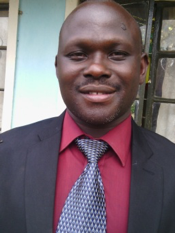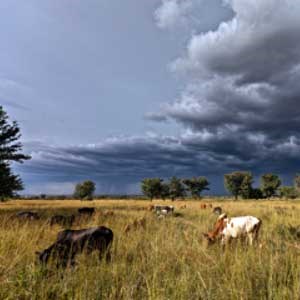Dr Kokos Ikwap, Assistant Lecturer at Makerere University in Kampala, Uganda is currently visiting Sweden and is a guest researcher at SLU in the AgriFoSe2030 programme between 25th of July to 19th of August 2016. He is the third research exchange that has been undertaken in the programme.
Just before his arrival AgriFoSe2030 got him to tell us a little bit about him and his visit.
Q: Tell us briefly who you are? What is your background and what are your research areas?
 KI: I am Kokas Ikwap, currently an Assistant Lecturer at Makerere University, Kampala Uganda. I hold a PhD in Molecular Epidemiology from Makerere University. Before undertaking my PhD studies, I graduated with a B.Sc. degree in Veterinary Medicine and later, studied for a M.Sc. in Molecular Biology and Biotechnology. As far as research is concerned, I am particularly interested in the molecular epidemiology of zoonoses along the food value chain and develop protocols for the control of specific diseases in livestock. Zoonoses are diseases or infections spread between vertebrate animals and humans.
KI: I am Kokas Ikwap, currently an Assistant Lecturer at Makerere University, Kampala Uganda. I hold a PhD in Molecular Epidemiology from Makerere University. Before undertaking my PhD studies, I graduated with a B.Sc. degree in Veterinary Medicine and later, studied for a M.Sc. in Molecular Biology and Biotechnology. As far as research is concerned, I am particularly interested in the molecular epidemiology of zoonoses along the food value chain and develop protocols for the control of specific diseases in livestock. Zoonoses are diseases or infections spread between vertebrate animals and humans.
Q: What will you be doing during your visit to SLU, Sweden and how does it relate to the AgriFoSe2030 programme? How do you contribute to the programme and what can you learn from it?
KI: My visit to SLU this time will be for close to a month and within this period, I will have continued discussions with partners at SLU on research funded by AgriFoSe2030. This research focuses on hygiene and legislation in small-scale slaughter abattoirs in Uganda. When in Sweden, I will have a number of study visits to small scale abattoirs in order to acquire knowledge on aspects of slaughter hygiene and legislation regarding food safety in developed countries. This knowledge will be part of the information needed to come up with suggestions aimed at improving the slaughter hygiene at small-scale abattoirs in Uganda. This can translate into safe meat for the communities within and outside Uganda.
Q: What are your expectations of the AgriFoSe programme? What do you think makes the programme important, and why and to whom does it matter?
KI: In my opinion, this programme tries to addresses the issue of not only food security but also food safety. Without food safety, there is no food security. Local communities consuming safe food are healthier and wealthier and spend more time in productive activities like food production. The safe foods may also meet standards from foreign markets and thereby, enabling local communities engage in international trade. I believe that it is trade that efficiently redistributes resources from the haves to the have nots, i.e. it contributes to a more equal and just distribution of food.
Q: Tell us one thing that you are passionate about related to food security and sustainable agriculture.
KI: With increasing awareness in communities around the world, food safety is part of food security. Therefore the thinking is that much as we make communities food secure, the food itself should also be safe for consumption. Lack of safe food and awareness and knowledge in how to make food safe creates food insecurity.

 KI: I am Kokas Ikwap, currently an Assistant Lecturer at Makerere University, Kampala Uganda. I hold a PhD in Molecular Epidemiology from Makerere University. Before undertaking my PhD studies, I graduated with a B.Sc. degree in Veterinary Medicine and later, studied for a M.Sc. in Molecular Biology and Biotechnology. As far as research is concerned, I am particularly interested in the molecular epidemiology of zoonoses along the food value chain and develop protocols for the control of specific diseases in livestock. Zoonoses are diseases or infections spread between vertebrate animals and humans.
KI: I am Kokas Ikwap, currently an Assistant Lecturer at Makerere University, Kampala Uganda. I hold a PhD in Molecular Epidemiology from Makerere University. Before undertaking my PhD studies, I graduated with a B.Sc. degree in Veterinary Medicine and later, studied for a M.Sc. in Molecular Biology and Biotechnology. As far as research is concerned, I am particularly interested in the molecular epidemiology of zoonoses along the food value chain and develop protocols for the control of specific diseases in livestock. Zoonoses are diseases or infections spread between vertebrate animals and humans.